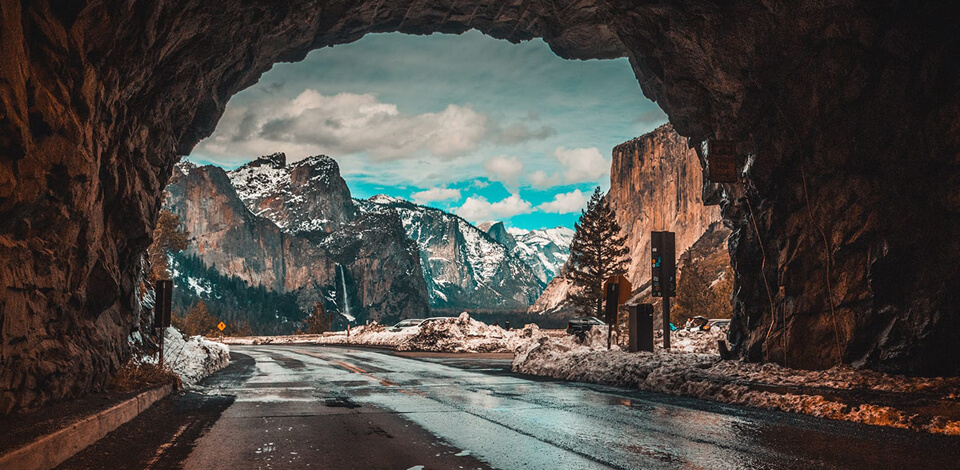
Many photographers use the frame within a frame technique to focus a viewer's attention on the main subject using different visual elements. The key advantage of this method is the huge selection of subjects that can be used as a frame for your subject. Look around and you'll find plenty of objects for your ideas: a window, a doorway, a tunnel, areas with a lot of light and shadow, foliage, and more.
To make your images look attractive and unique, you should use props and other available objects. Colors, architectural elements, lighting, and other things will come in handy to bring your creative photography ideas to life and get the public interested in your pictures.
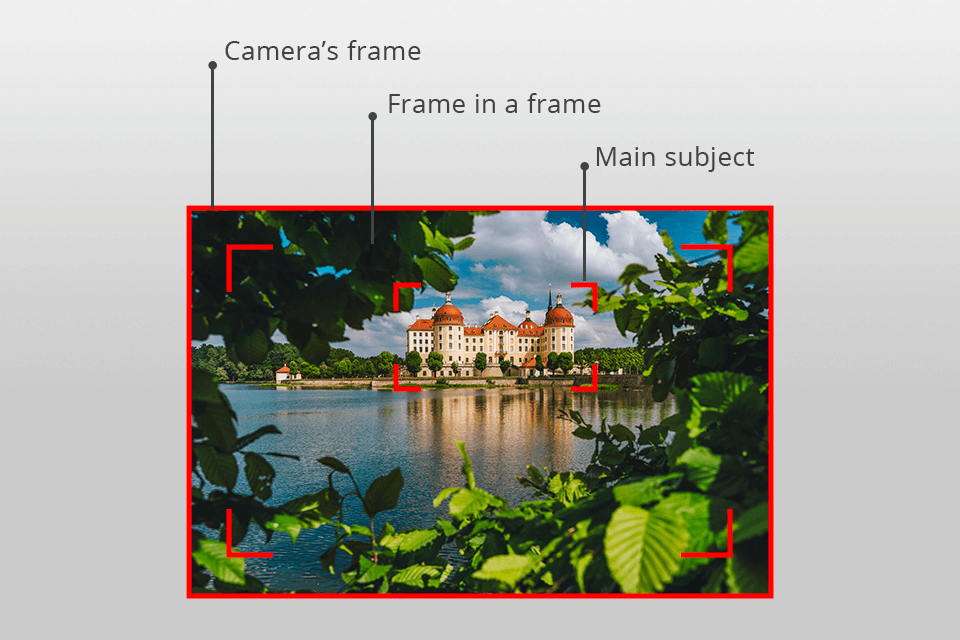
Nature has tons of amazing elements that you can use as frames. When working on a nature photography project, you will surely notice various flowers, leaves, rocks, and similar things all around you. Why not use them to focus a viewer on the subject and the surrounding? Play with different angles and focal lengths to achieve more impressive results.
Don't forget that your frame within a frame photos should look natural. Remember that the frame should not be the center of the composition. The focus should be on the main subject. For example, the leaves or branches that you use as a frame should only cover the main object a little without distracting from it.

If you're into indoor photography, you don't have to search for the right objects to use them as frames. You have everything you need in the room. You can use a painting on the walls, pieces of furniture, curtains and other things to form appealing lines.
One of the easiest frame in frame photography ideas is to stand behind a door or a curtain and capture the subject from that spot. This position will allow you to grab the audience's attention and make them feel like they're peeping into the scene.
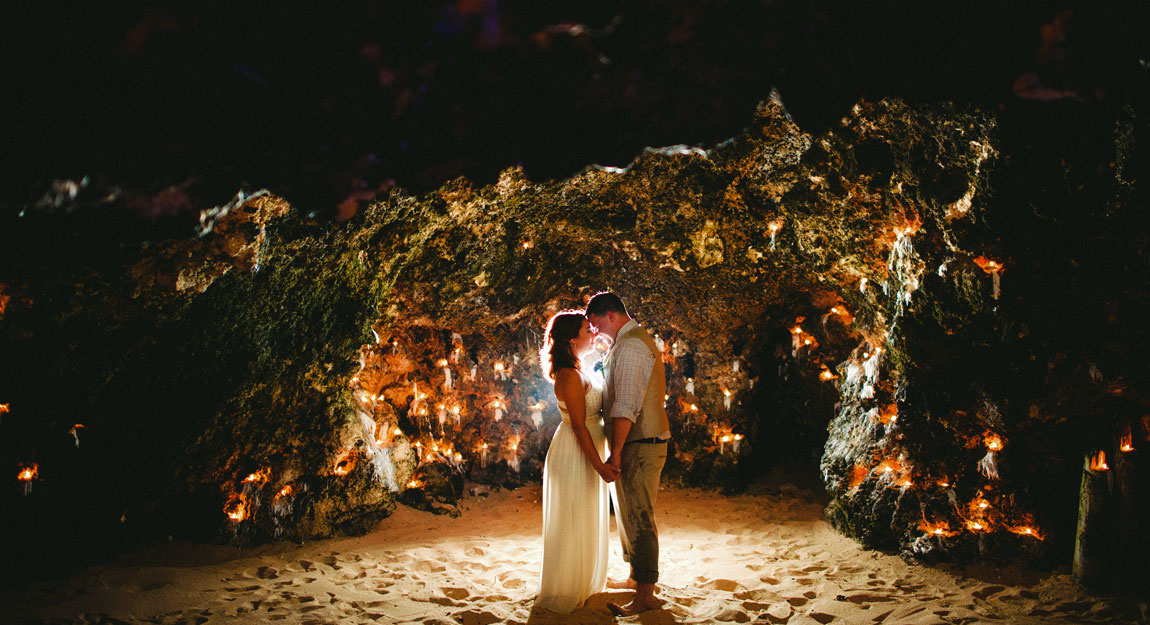
Foreground framing is one of the simplest and most popular frame in a frame photography methods. However, this is not the only way to achieve similar results. Background framing is another technique for creating eye-catching photos.
Careful preparation before photographing is the basis for your success. Take a look around to understand what things you want to see in the picture. Think over every detail of the composition. Try to follow these steps every time you take a photo. A lot of practice will allow you to get the right shots faster.
Pro Tip: Use a wide aperture if you want to use a shallow depth of field. You should also remember that by setting a wide aperture you will allow more light to enter your lens. Bright lighting conditions can ruin your pictures. The golden hour is the perfect time to shoot. You can also take photos from the shade to get softer light.
As stated above, this is one of the easiest methods you can use to take frame inside frame photos. The subject looks more flattering if you have an interesting foreground element in the scene. Sometimes, it can be just as important to the composition as the rest of the image.
Using part of a scene as a subject is one of the creative photography composition tips that you may use. Once you've chosen the area, you need to define a shape within the picture in the foreground to focus on.
Pro Tip: It's a good idea to take pictures when the sunlight isn't too harsh. If you shoot during the hour after sunrise or before sunset you will get softer light. This time is called the golden hour. It will be easier for you to find suitable exposure settings for both outside and inside photos. What's more, delicate, reddish light will make your photos more visually appealing.

The window is one of the traditional framing elements. When taking pictures through a window, you should use the window frame as part of the composition.
To get beautiful photos, you need to check if the subject is well-exposed. You should use a focus bracket to get a detailed picture. The problem may arise since the inside part of the window may be poorly lit. Shooting with a camera with a high dynamic range can also be a solution.
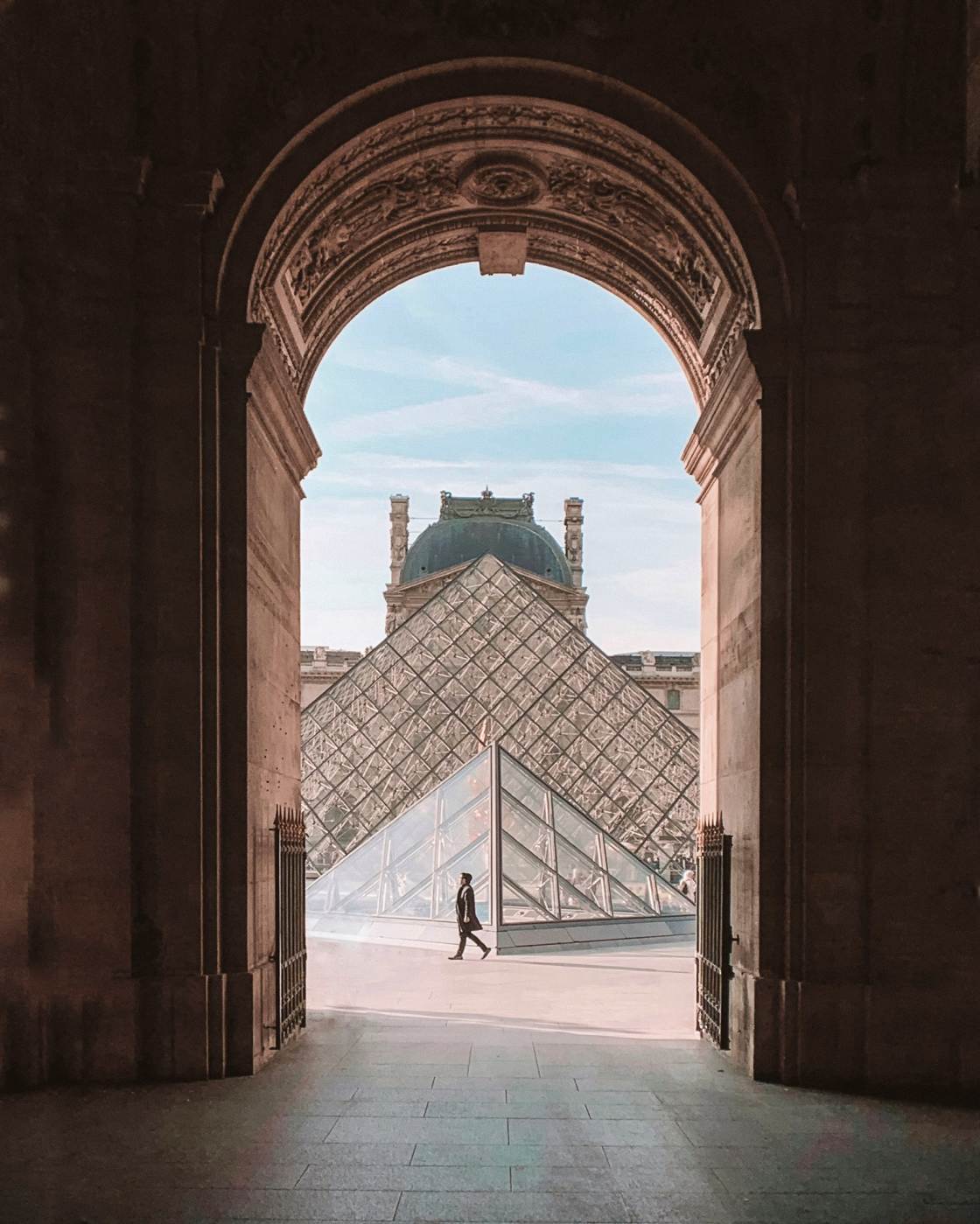
When photographing in the city, you can find tons of great options to create stunning frames for your subject. Interesting architectural elements are everywhere: both inside and outside. Just take a closer look, and you will see attractive balconies, windows, archways, and other objects. You can take advantage of architectural frames applied to both man-made and natural objects.

If you arrange the leading lines in the frame correctly, this will let you draw a viewer’s attention to the focal point of the photo. There are many ways to use this technique. What's more, you can have multiple frames in a frame. For example, you can use a light source, ceiling, walls, and other elements in addition to the doorway framing the subject.

Of course, physical objects are the most useful for frame within a frame photography. However, using light and shadows also gives you a lot of creative options. This method may seem a bit complicated for beginners. But, experienced portrait photographers know how to use the beauty of shadows, sun rays, and refraction of light to draw attention to the main subject of the image.
If you specialize in shadow photography, then you understand the importance of choosing the right angle to shoot. This technique is suitable not only for photographing outdoors. You can take outstanding shots using artificial lighting in a studio. You may use various laser lights, a projector, and other gear to work with light and shadows.

The combination of reflection and frame inside frame techniques will bring incredible results. Just look at the picture of the couple captured with multiple frames. The circular cutout of the wall, the dark shadowed tile area, the rectangle behind their heads, and the overall architecture of the room create a fantastic result. This reflection photo is sure to cause a stir among viewers.

If you use the framing technique, this does not mean that you are limited to only one frame in the picture. However, you should be careful not to overdo it with these. Too many frames will make your picture confusing and may make the main subject less noticeable.
Think carefully about the whole composition. If you do everything right, you will keep the focus on the main object and enhance depth. For example, you can use two frames to direct the attention towards the main subject while hiding most of the cityscape.
Even the most creative frame will not save your boring shot. This frame in frame photography technique is suitable for those scenes that are interesting themselves and contain an attractive subject. A faded and boring object will not become breathtaking, no matter how hard you try to add a flattering frame. Make sure your scenes are captivating from the start.
Watch a helpful video from Flavio Gallegos. He explains how to properly apply framing in photography. What's more, you'll find some handy tips on how to use this technique while following the rule of thirds and other photography principles.
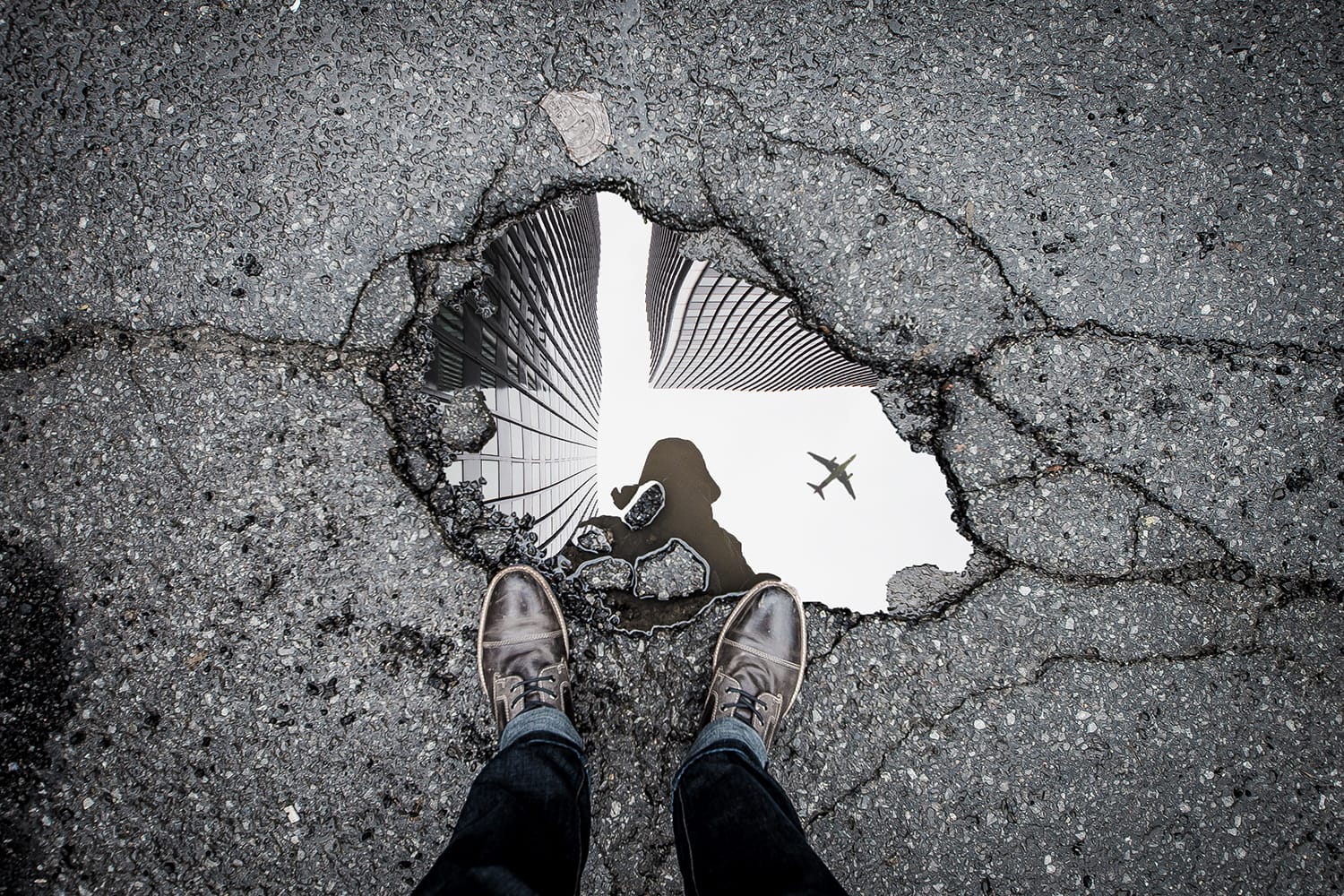
Typically, the metering mode allows you to adjust the exposure for a bright point in the center of the picture automatically. This means that your frame may be underexposed in some cases. Sometimes, you can take advantage of these situations and implement some creative ideas. However, if you didn't plan on taking these shots, try to avoid underexposure.
Underexposed and overexposed areas of the image are very different. Typically, you will need to apply advanced Photoshop techniques to fix various areas in your images. Using manual mode and setting an appropriate exposure will help you prevent this issue.

This compositional method includes a huge range of creative possibilities. You can find frames for your objects wherever you are. For example, when photographing outdoors, you can use flowers, trees, and other natural objects.
By capturing the subject through leaves or trees, you can focus attention on the subject itself and also give a visual representation of the location. This technique is often used in portrait photography.
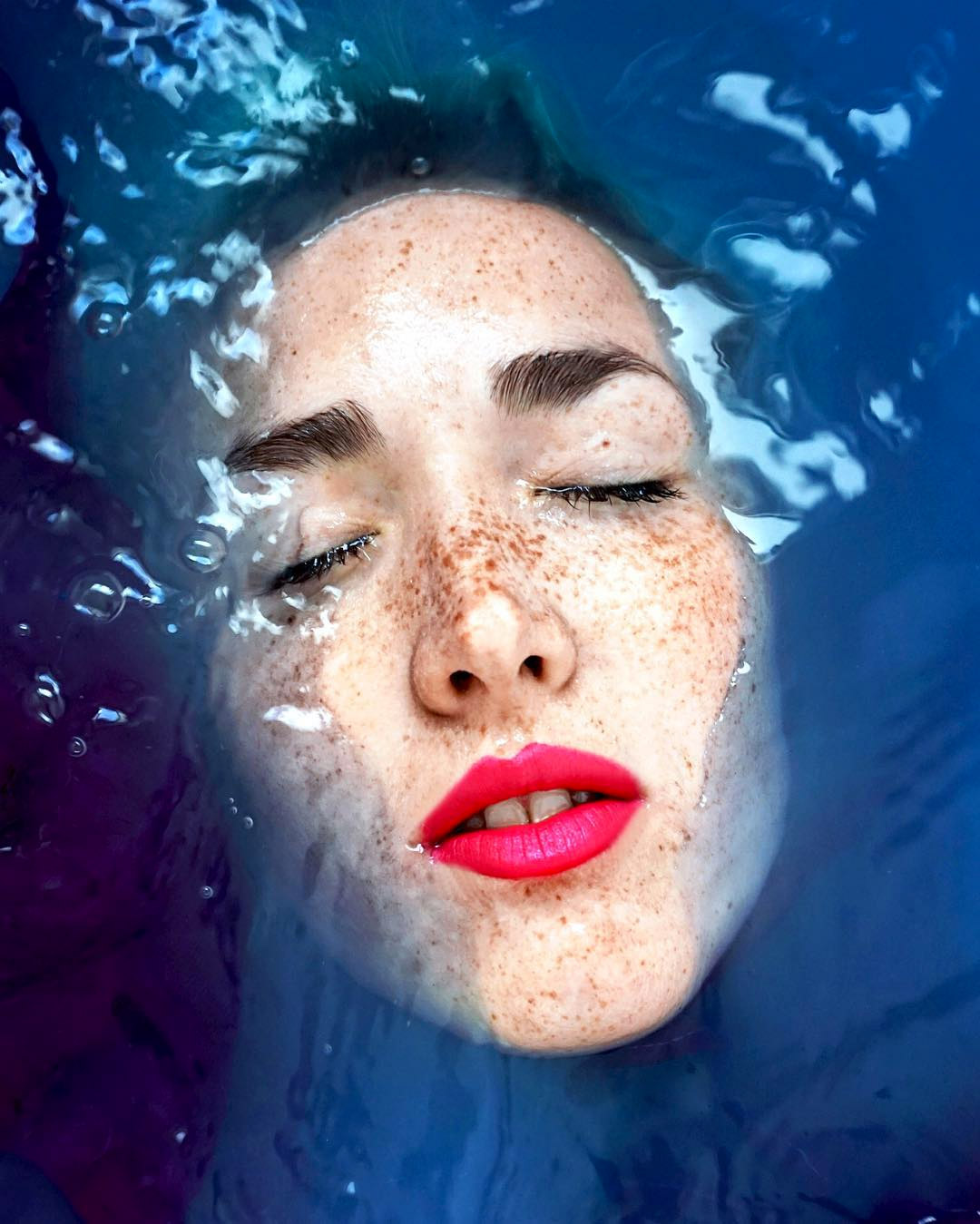
If you want your professional portfolio to look unusual and draw attention, 3D photos created using the frame inside frame technique are great solutions. You should stack the frames one on the other to get the desired effect. Next, you need to edit the shots for finer results. You can increase the contrast of some frames while blurring others.
There are many ways to make your framed picture more unique. For example, you can highlight the edges of an object while leaving it more blurred. Keep experimenting during photo post-processing to add a creative twist to your projects.
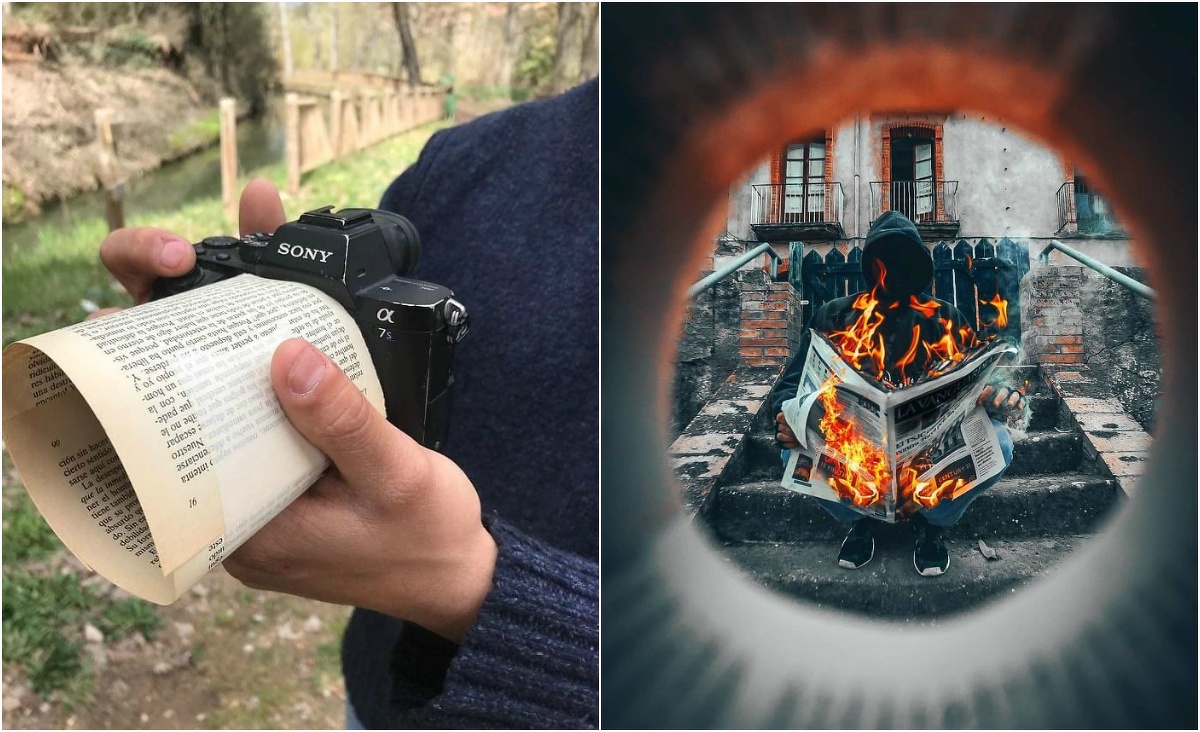
The more you practice, the faster you can recognize the natural frames in your environment. You can also use pictures from experienced photographers as sources of inspiration. Browse through various blogs dedicated to this technique or visit the pages of famous photographers on social networks to find some samples.
Then, try to use what you learned. Head into the city to take a few shots, creating a frame within a frame for each subject you capture. Try to do this every time you go out with a camera. Experiment and train your skills as much as possible to master this compositional technique.
Pro Tip: I also recommend using Instagram and Pinterest to get inspired by the work of other photographers. On these sites, you will find many photo ideas, including examples of framing in photography.
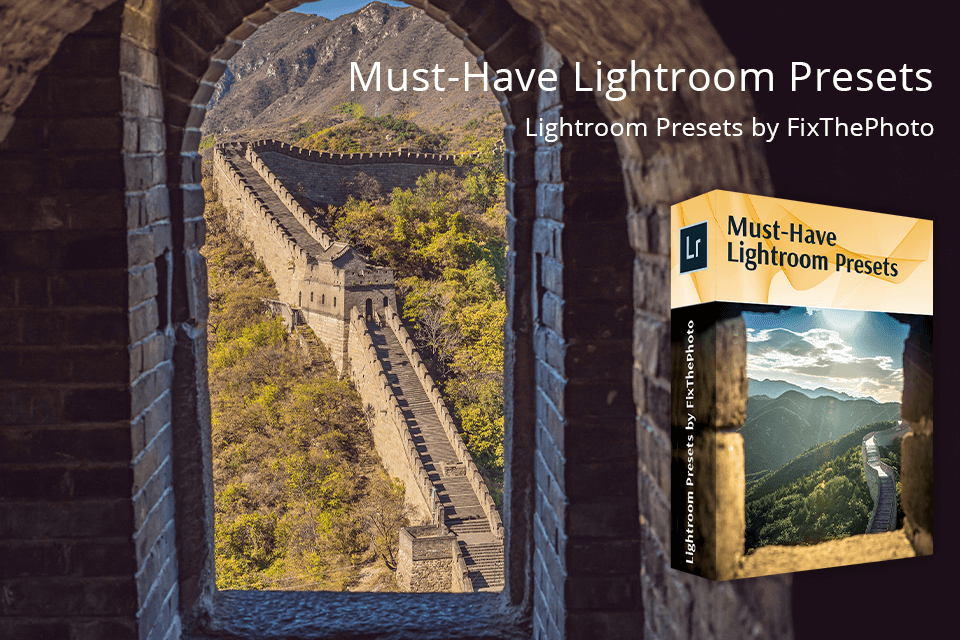
These presets were designed to fix contrast issues, adjust saturation, perform instant color grading, and more. With these presets, your framed pictures will look more balanced and polished even if you are not an expert. All you have to do is add these filters to Lightroom and apply them to your RAW photo.